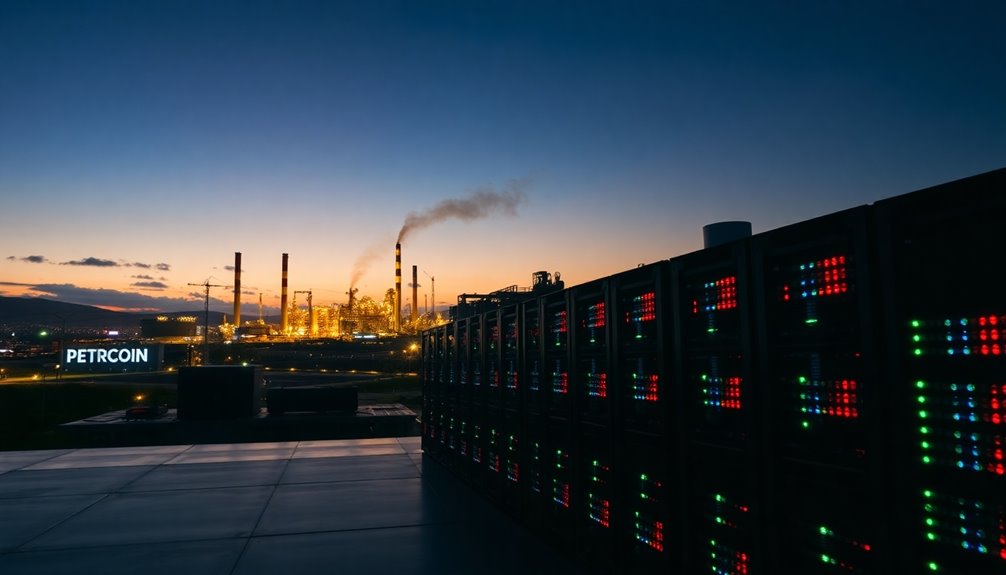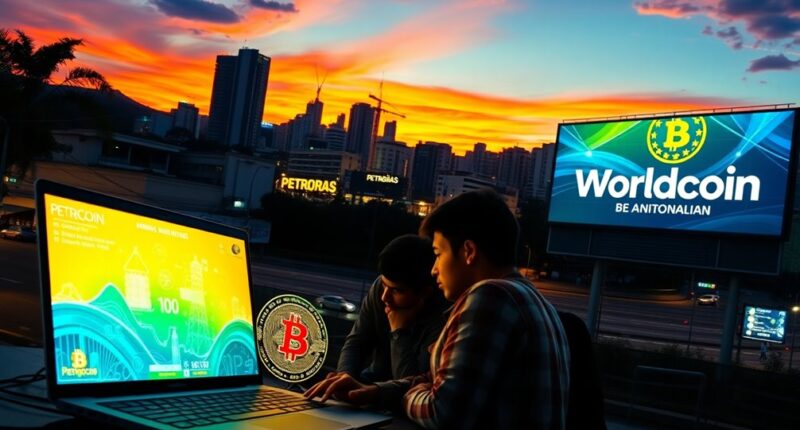Petrobras is diving into Bitcoin mining, focusing on renewable energy sources as part of its low-carbon transformation strategy. This initiative aims to utilize excess energy, reduce waste, and minimize environmental impact, aligning with global energy trends. Meanwhile, Brazil's investigation into Sam Altman's Worldcoin project raises questions about blockchain's future in the region. Both moves signal a dramatic shift in how energy and digital currencies might converge. You'll uncover more about these developments as they unfold.

As Petrobras embarks on its innovative Bitcoin mining initiative, it aims to integrate this digital frontier into its low-carbon transformation strategy. By launching this research and development project, you're witnessing how a major energy player is adapting to the evolving landscape of digital assets. The initiative isn't standalone; it involves multiple departments within Petrobras and collaborates with esteemed institutions like the Leopoldo Américo Miguez de Mello Research, Development and Innovation Center (Cenpes) and Petrobras University. This collaboration highlights the company's commitment to harnessing expertise from various sectors to ensure the project's success.
What's particularly exciting is Petrobras' focus on energy utilization. You'll see them tapping into their extensive energy resources, potentially leveraging excess or renewable energy for sustainable Bitcoin mining. This choice reflects a broader trend among major energy companies, like ExxonMobil and ConocoPhillips, which have also initiated pilot programs in Bitcoin mining. By joining this movement, Petrobras isn't just keeping up; it's innovating within its operational framework. Heat pumps can play a significant role in optimizing energy efficiency for such initiatives.
Moreover, the project aligns with Petrobras' ambition to diversify beyond traditional energy markets, showcasing its commitment to technological innovation. It's not just about mining Bitcoin; Petrobras is exploring various blockchain applications beyond this realm. For instance, the company is investigating tokenization projects that might convert physical assets, like oil reserves, into digital tokens. This could enhance transparency and liquidity, which are essential in today's market.
Beyond tokenization, Petrobras is researching consensus mechanisms that could revolutionize different business models and processes. The integration of blockchain technology aims to increase efficiency while reducing the environmental impact. You might find it particularly interesting how blockchain-based tokenization could streamline the tracking and trading of carbon credits, aligning perfectly with Petrobras' sustainability goals. This focus on blockchain applications in low-carbon transformation is crucial as the world continues to grapple with climate change and the need for cleaner energy solutions.
Renewable energy use is another significant aspect of this initiative. Petrobras plans to leverage renewable sources for Bitcoin mining, aligning with its low-carbon transformation strategy. You might've heard about the potential of flare gas utilization for mining operations, which could reduce waste and generate new revenue streams. This approach not only minimizes environmental impact but also capitalizes on Brazil's abundant energy resources, making it an ideal location for sustainable Bitcoin mining.
However, it's essential to recognize the challenges that may lie ahead. Petrobras might face regulatory uncertainties as they navigate complex frameworks surrounding Bitcoin mining and tokenization. Additionally, public perception regarding the environmental impact of Bitcoin mining could pose obstacles, despite the company's commitment to using renewable energy.









